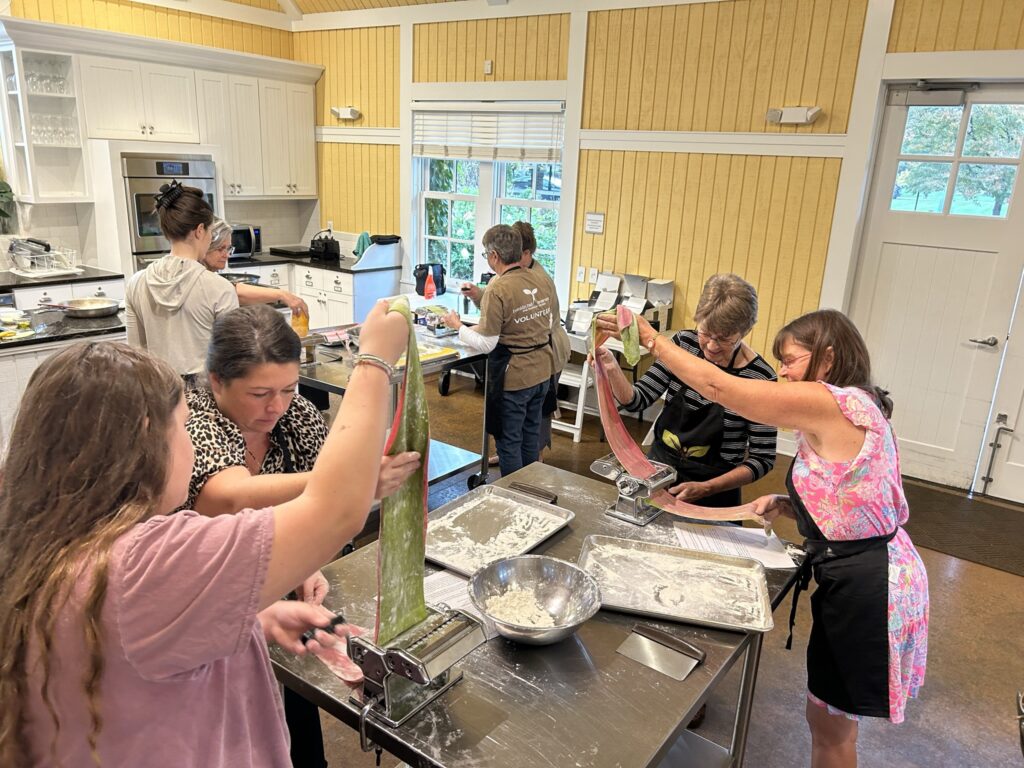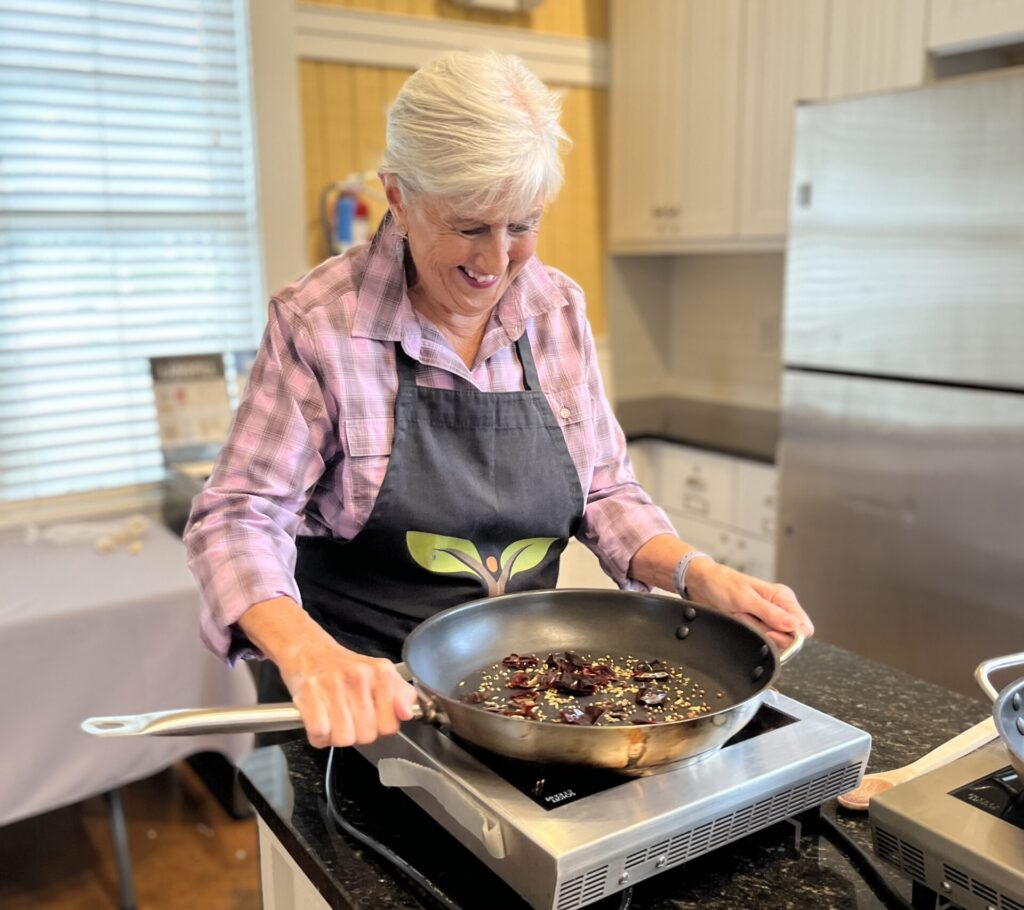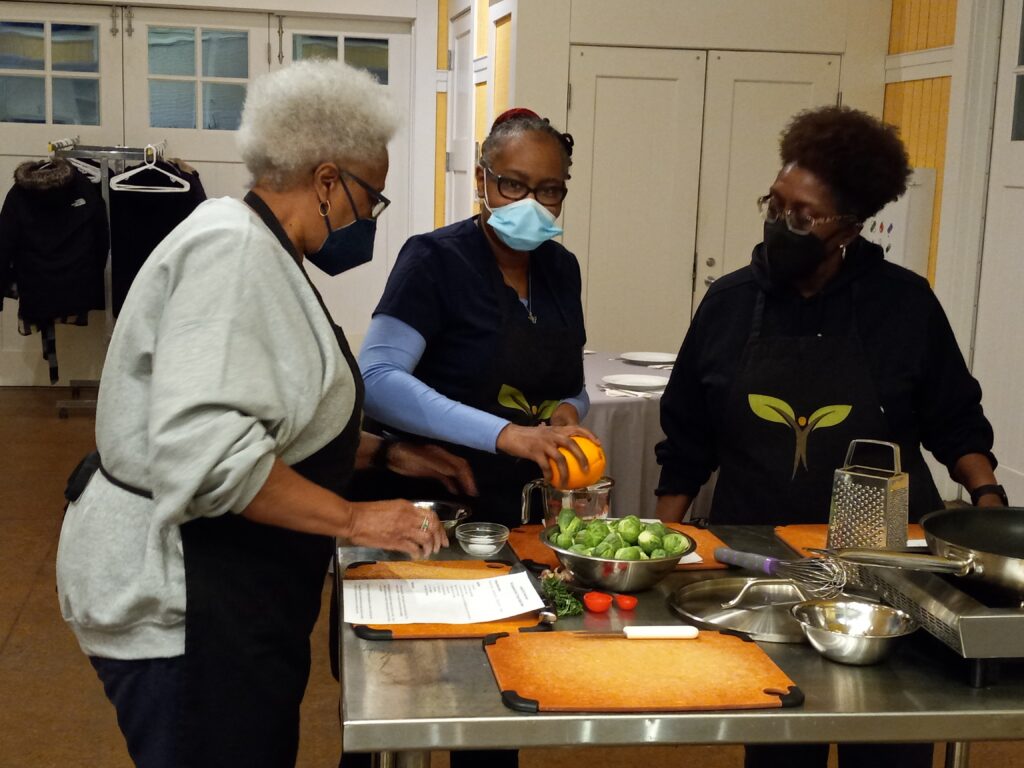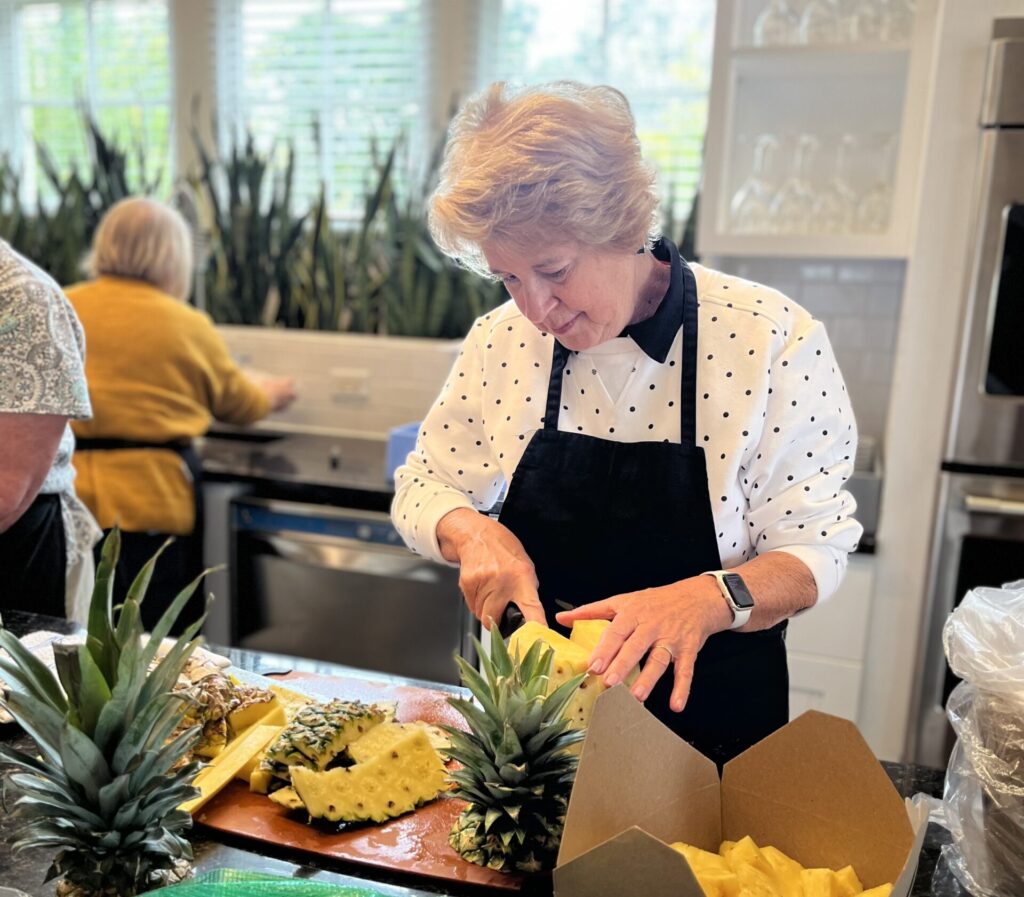Published November 15, 2023
When you think of sustainability, what comes to mind? Perhaps you think of using a reusable water bottle, bringing reusable bags to the grocery store, or choosing to walk or bike rather than drive. There are many ways to implement and practice sustainability in your everyday life, and at the Conservatory, you can learn about sustainability by exploring the connection between food and the planet through The Sustainable Kitchen Series.
Heather Bell, Franklin Park Conservatory Culinary and Sustainability Educator, has been hosting The Sustainable Kitchen Series since 2020. These classes teach attendees how to cook a meal while learning about sustainability in the kitchen, and the small steps one can take to help the planet.
“I teach people to fight climate change through food,” Bell proudly shared.

Each month the Conservatory hosts four culinary classes, three of which are with guest instructors, including vegan and vegetarian chefs, professional bakers, and specific cultural chefs.
The idea for this series came about after the COVID-19 pandemic when Bell was asked to assist a colleague with a virtual cooking class. After a successful course, she was asked to teach cooking full time. Of course she agreed, but with one stipulation: to infuse her passion for sustainability into her courses.
“That is my number one passion, and food, just like sustainability, is connected to everything, it’s universal.”
To ensure sustainability is being implemented into the lessons of each series, Bell will discuss and explain different methods attendees can take to help the planet while in the kitchen.
“I might talk about food scraps, how to use them, how to store them for composting or for longer shelf life. We talk about recycling, composting, the quality of equity in agriculture, fair trade, direct trade, informed consumerism, so understanding what these labels are and what they mean, because not everything is regulated. We talk a lot about the language in food, local, organic, we talk about those labels that are often misleading and confusing to people, so it’s however the recipe lends itself,” Bell explained.

The Sustainable Kitchen Series is not only important for teaching how to be sustainably conscious while cooking, but also important in creating a sense of community among those who attend.
Many families attend, but there are many who come alone. In each class, attendees collaborate with one another, share ingredients, and discuss. There’s a sense of bonding over food, sustainability, and plants.
“People walk in and they are strangers, and by the end of the evening they are laughing, they’re talking, they are chatting, a few of them have exchanged phone numbers and emails,” Bell shared. “I’ve heard people say, ‘Oh I’m taking such and such class next month, sign up for it. We’ll do it together’ so people are forming these connections and these relationships and really coming together.”

When participants leave a Sustainable Kitchen class they will have learned something new about cooking – whether that is a skill, technique or even how to use an ingredient in a different way, as well as something about sustainability that they can practice and share with others.
To keep with the sustainability theme and efforts, many of the ingredients used in these classes come directly from Franklin Park Conservatory’s Scotts Miracle-Gro Company Community Garden Campus.
“During the growing season I pull as much as I can from our garden and use it. If it’s off season, then it’s whatever I can get, whatever inspires me.” Bell said.
After noticing that a majority of people are unsure how to cook or prepare many common and recognizable foods, such as pineapple or chicken, Bell made an effort to ensure the Sustainable Kitchen Series hones in on teaching participants how to cook with these foods.

The Sustainable Kitchen Series proves that simply implementing sustainable practices in your daily life can provide one with a sense of community, as sustainability is not just a one-person job, it is a collective communal effort.
“I think there’s a lot of people who are interested in sustainability, and want to fight climate change but they don’t know how. I like to tell people my classes are for anybody regardless of where they are in their [sustainability and/or cooking] journey and what their ultimate end goal is. My focus is to teach people a few simple decisions that they can make around food because that’s something you can control and hopefully from there it’ll grow,” Bell happily shared.